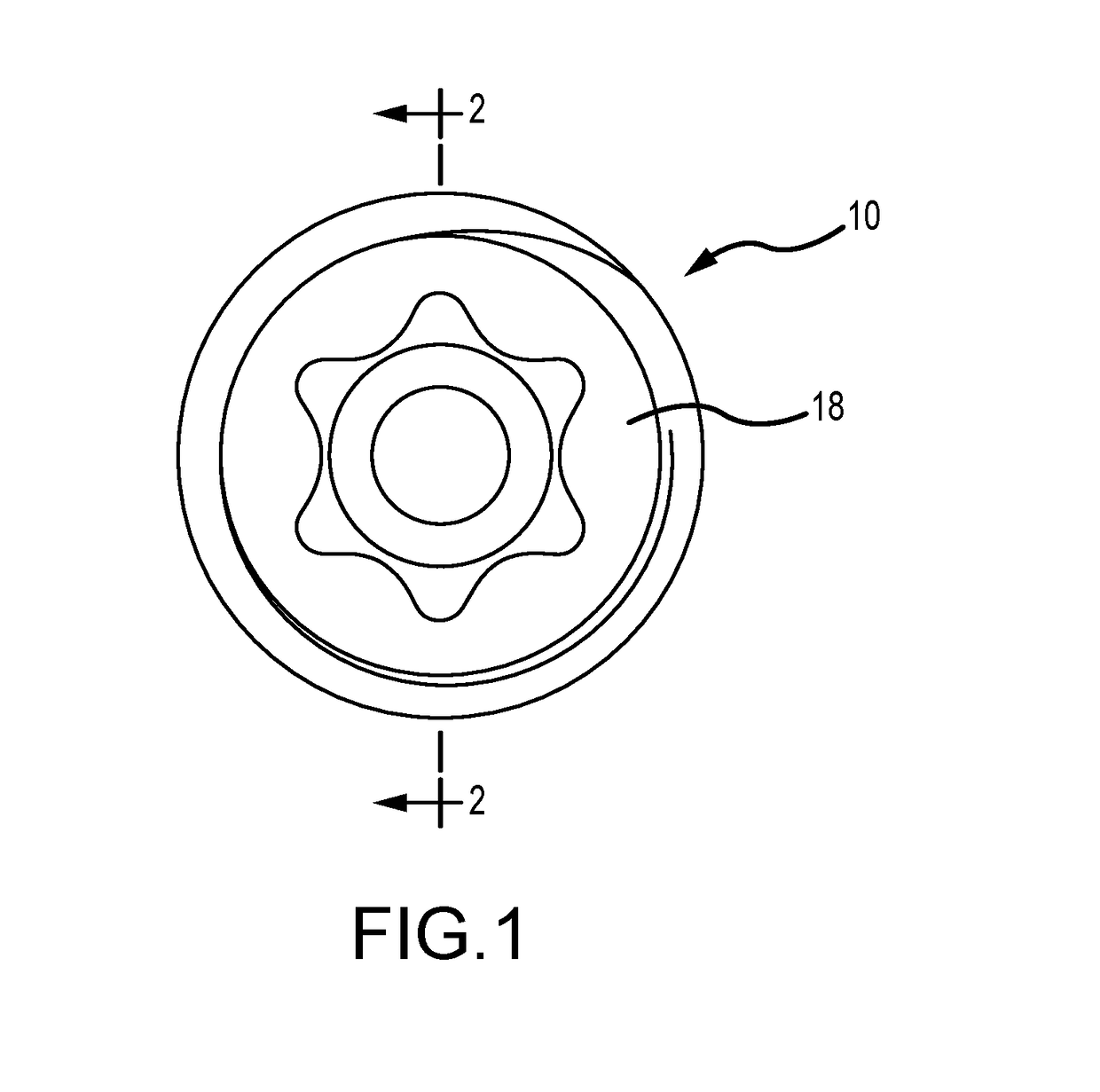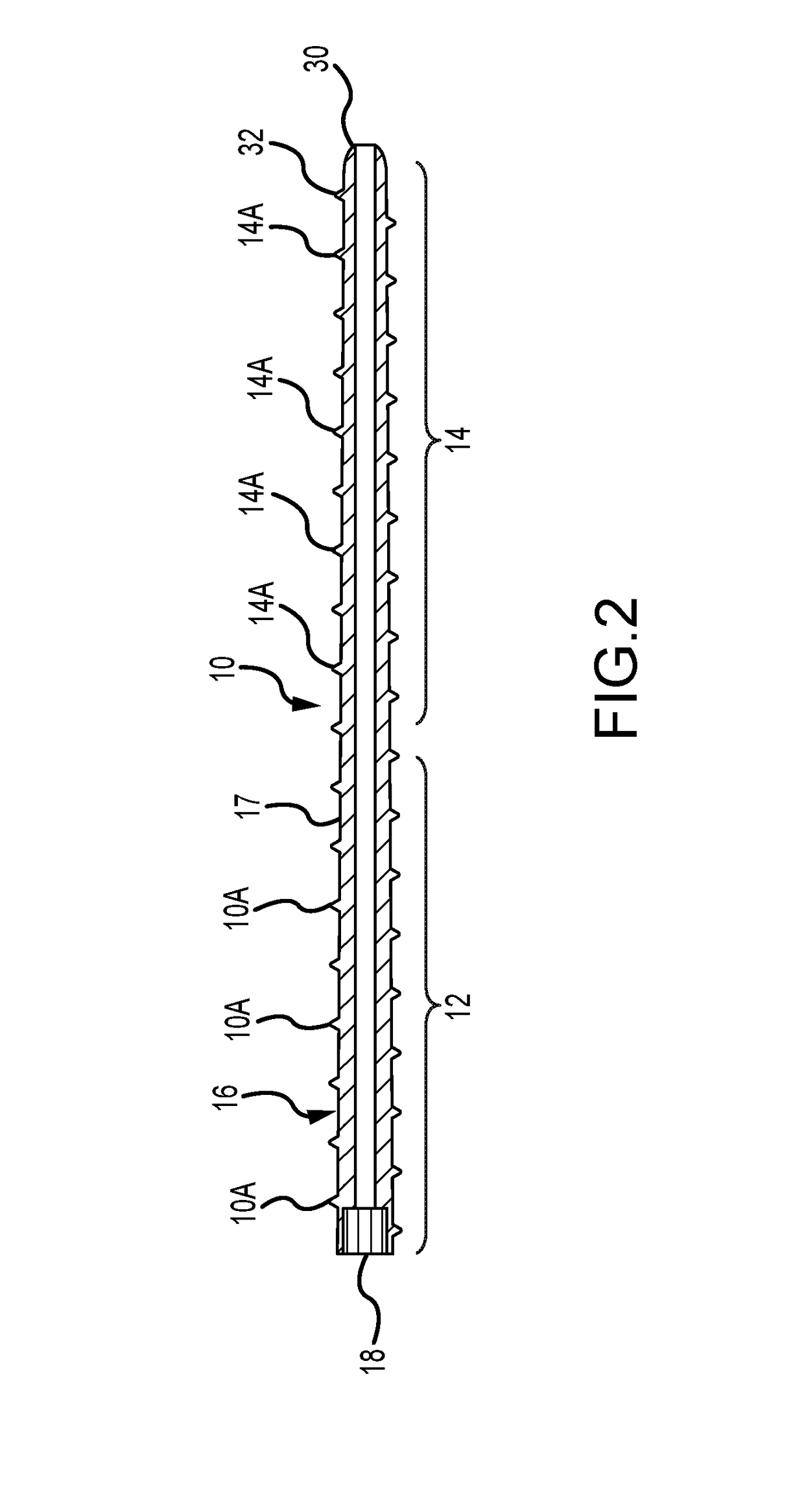Bone stabilization device
- Summary
- Abstract
- Description
- Claims
- Application Information
AI Technical Summary
Benefits of technology
Problems solved by technology
Method used
Image
Examples
Embodiment Construction
[0021]Turning now to the figures, where the purpose is to describe preferred embodiments of the invention and not to limit same, FIG. 1 shows an exemplary embodiment 10 of the invention. Device 10 may be formed of any suitable material, such as titanium steel, stainless steel or nitinol. Device 10 has a first (or proximal) section 12, a second (or distal) section 14, and a shaft 16 with an outer surface 17. Device 10 may be between 6.5 cm and 8 cm in length, or have a length of about 7 cm.
[0022]First section 12 has first threads 10A which preferably have a height of about 0.5 to 1 mm as mearured from outer surface 17, and a pitch of about 1 mm per revolution. A driving surface, or head, 18 is shown as being the same diameter of first section 12, but head 18 may have a different diameter or be of a different shape, such as triangular. Head 18 may accept any suitable driver configuration, such as a Torx drive, slotted, Pozidriv, Robertson, tri-wing, Torq-Set, SpannerHead, Triple Squar...
PUM
 Login to View More
Login to View More Abstract
Description
Claims
Application Information
 Login to View More
Login to View More - R&D
- Intellectual Property
- Life Sciences
- Materials
- Tech Scout
- Unparalleled Data Quality
- Higher Quality Content
- 60% Fewer Hallucinations
Browse by: Latest US Patents, China's latest patents, Technical Efficacy Thesaurus, Application Domain, Technology Topic, Popular Technical Reports.
© 2025 PatSnap. All rights reserved.Legal|Privacy policy|Modern Slavery Act Transparency Statement|Sitemap|About US| Contact US: help@patsnap.com



